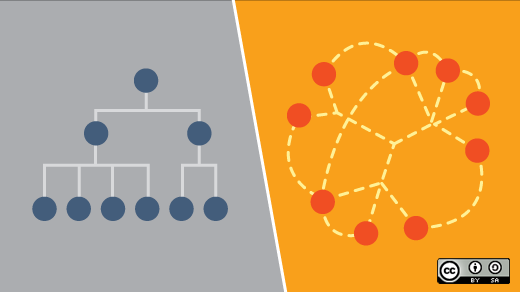Last week, Google CEO Eric Schmidt announced in a post on his blog he was stepping aside and Google co-founder Larry Page would take on management of Google's day-to-day operations as the new CEO. Although Schmidt is staying on as Executive Chairman for now and will continue to have an ongoing role in the company, many including myself, were surprised by the news.
I see Google and Red Hat both as fantastic poster children for openness as a successful business strategy. I've written many times about how the open source way deeply impacted our work at Red Hat even beyond building software. I've also written about Google and the open source way, and pointed to this famous post from Google's Senior VP of Product Management Jonathan Rosenberg explaining Google's commitment to openness.
But what does Google's management change say about the open source way?
Before you answer, here are a few things I've read this week and found interesting:
Ken Auletta, author of the book Googled, speculates in a blog post on The New Yorker's website that Eric Schmidt was upset last year when he was outvoted 2-1 by co-founders Sergey Brin and Larry Page to withdraw censored searches from China. From the post:
Schmidt, according to associates, lost some energy and focus after losing the China decision. At the same time, Google was becoming defensive. All of their social-network efforts had faltered. Facebook had replaced them as the hot tech company, the place vital engineers wanted to work. Complaints about Google bureaucracy intensified.
During the Google earnings call last week, Larry Page provided another clue, saying he hoped as CEO he could return Google to its entrepreneurial roots. From an article in the Los Angeles Times:
But [Page] and Brin had grown frustrated as talented engineers with strong entrepreneurial drive left Google to start their own companies or work for fleet-footed competitors such as Facebook, which is run by its 26-year-old founder who also has a strong product vision and technical chops, Mark Zuckerberg.
Now, Page will try to inject some of that old start-up energy and what he has called "healthy disregard for the impossible" into his sprawling company.
Another interesting post makes the connection between Steve Jobs and Eric Schmidt both stepping down as CEO in the same week, and compares the open (Google) vs. closed (Apple) approach each company used to announce its change.
Time Magazine's Bill Saporito draws the conclusion that some of what I'd see as open source principles driving the culture of Google are actually an impediment to Google's growth. He believes Google needs more traditional management and "adult supervision" (a reference to the way Schmidt has described his role over the years at Google) rather than less, and claims Page is exactly what Google doesn't need right now.
Visitors to the Googleplex report internal management strategies that are by turns utopian and bizarre -- everybody evaluates everybody else's performance, for instance using, a wiki-style management software.
Funny, that doesn't sound so bizarre to me. It sounds more like something out of the future of management.
A few questions for you:
- Will Larry Page use open source principles to lead Google from a bureaucratic culture back toward a more entrepreneurial culture?
- Does the disagreement over the China decision show that Page and Brin have a commitment to openness that Schmidt does not have?
- Do you think Google is better off staying committed to openness, or would the company become even more innovative if they moved closer to the direction of Apple?
I'd love to hear what you think.






4 Comments